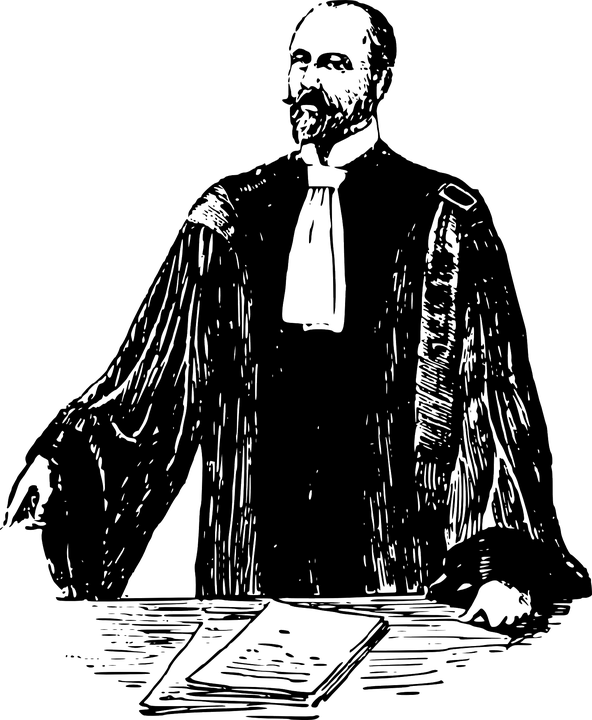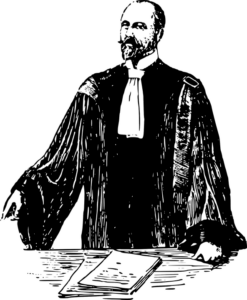Throughout history, there have been many lawyers who have made a significant impact on the world. These individuals have used their legal expertise to bring about change, fight for justice, and advocate for the rights of others. From Abraham Lincoln to Thurgood Marshall, these lawyers have left a lasting legacy that continues to inspire and influence the legal profession today. In this article, we will explore the lives and accomplishments of some of the most famous lawyers who have changed history.
Abraham Lincoln: From Lawyer to President
Abraham Lincoln is perhaps best known for his role as the 16th President of the United States, but before he entered politics, he was a successful lawyer. Born in a log cabin in Kentucky, Lincoln had very little formal education, but he was determined to make something of himself. He taught himself the law and passed the bar exam in 1836. Lincoln quickly gained a reputation as a skilled and honest lawyer, earning the nickname “Honest Abe.” He handled a variety of cases, from criminal defense to corporate law, and his success in the courtroom helped to launch his political career. As President, Lincoln faced the monumental task of leading the country through the Civil War and ultimately abolishing slavery with the Emancipation Proclamation. His legacy as a lawyer and a leader continues to inspire people around the world.
Abraham Lincoln’s impact on history cannot be overstated. As a lawyer, he fought for justice and equality, and as President, he led the nation through one of its most challenging periods. His commitment to upholding the principles of freedom and equality has left an indelible mark on American history and continues to serve as a source of inspiration for lawyers and leaders today. Lincoln’s ability to navigate complex legal issues and his unwavering dedication to justice make him a shining example of the power of the legal profession to effect positive change in the world.
Thurgood Marshall: Paving the Way for Civil Rights
Thurgood Marshall was a trailblazing lawyer who dedicated his life to fighting for civil rights and equality. Born in Baltimore, Maryland, in 1908, Marshall faced discrimination and segregation from an early age. Despite these challenges, he excelled academically and went on to attend Howard University School of Law, where he honed his skills as a lawyer and became involved in civil rights activism. Marshall’s most famous case was Brown Board of Education, in which he successfully argued that racial segregation in public schools was unconstitutional. This landmark Supreme Court decision paved the way for desegregation in schools and marked a major victory for the civil rights movement. In 1967, Marshall became the first African American to serve on the Supreme Court, where he continued to champion civil rights until his retirement in 1991.
Thurgood Marshall’s impact on civil rights and the legal profession cannot be overstated. His tireless advocacy for equality and justice helped to dismantle institutionalized racism and set important legal precedents that continue to shape the American legal system today. Marshall’s legacy serves as a reminder of the power of the law to bring about meaningful change and his commitment to fighting for justice continues to inspire lawyers and activists around the world.
Ruth Bader Ginsburg: Champion of Gender Equality
Ruth Bader Ginsburg was a pioneering lawyer and jurist who dedicated her career to advancing gender equality and women’s rights. Born in Brooklyn, New York, in 1933, Ginsburg faced discrimination as a woman in a male-dominated field, but she refused to be deterred by societal expectations. After graduating from Columbia Law School, she became a leading advocate for gender equality, arguing several landmark cases before the Supreme Court that helped to dismantle discriminatory laws and practices. In 1993, Ginsburg became the second woman to serve on the Supreme Court, where she continued to fight for gender equality and became known for her powerful dissents on cases related to women’s rights, voting rights, and LGBTQ+ rights. Ginsburg’s unwavering commitment to justice and equality has left a lasting impact on the legal profession and society as a whole.
Ruth Bader Ginsburg’s legacy as a champion of gender equality continues to inspire lawyers and activists around the world. Her groundbreaking work as a lawyer and jurist has helped to shape the legal landscape for women and marginalized communities, and her fearless advocacy for justice serves as a powerful example of the impact that one person can have on society. Ginsburg’s dedication to fighting for equality has left an indelible mark on history and her influence will continue to be felt for generations to come.
Mahatma Gandhi: Lawyer and Leader of Indian Independence
Mahatma Gandhi was not only a spiritual leader and political activist but also a trained lawyer who used his legal expertise to fight for Indian independence from British colonial rule. Born in Porbandar, India, in 1869, Gandhi studied law in London and became a barrister before returning to India to practice law. However, he soon became involved in political activism and began advocating for nonviolent resistance as a means of achieving social and political change. Gandhi’s leadership of the Indian independence movement ultimately led to India gaining independence from British rule in 1947. His commitment to nonviolent protest and civil disobedience has inspired countless movements for social justice around the world.
Mahatma Gandhi’s legacy as a lawyer and leader of Indian independence continues to inspire people around the world. His unwavering commitment to nonviolence and his ability to mobilize people through peaceful protest serve as a powerful example of the potential for positive change through legal advocacy and social activism. Gandhi’s influence on human rights and social justice movements is immeasurable, and his legacy as a lawyer turned leader continues to inspire lawyers, activists, and leaders today.
Nelson Mandela: Lawyer Turned Anti-Apartheid Activist
Nelson Mandela was not only a revolutionary leader but also a trained lawyer who used his legal expertise to fight against apartheid in South Africa. Born in Mvezo, South Africa, in 1918, Mandela studied law at the University of Fort Hare and later became involved in anti-apartheid activism. He was arrested and imprisoned for his political activities but continued to advocate for equality and justice throughout his life. Mandela’s leadership of the African National Congress and his unwavering commitment to ending apartheid ultimately led to his release from prison in 1990 and his election as President of South Africa in 1994. Mandela’s legacy as a lawyer turned anti-apartheid activist continues to inspire people around the world.
Nelson Mandela’s impact on human rights and social justice is immeasurable. His ability to use his legal expertise to fight against injustice and his unwavering commitment to equality serve as a powerful example of the potential for positive change through legal advocacy and activism. Mandela’s legacy as a lawyer turned leader continues to inspire lawyers, activists, and leaders today.
Clarence Darrow: Defending Civil Liberties in the Courtroom
Clarence Darrow was a renowned lawyer who dedicated his career to defending civil liberties and advocating for social justice. Born in Ohio in 1857, Darrow became known for his passionate defense of labor unions, civil rights activists, and individuals facing criminal charges. He gained national attention for his defense of John T. Scopes in the famous Scopes Monkey Trial, where he argued against the teaching of creationism in public schools. Darrow’s commitment to defending civil liberties made him one of the most influential lawyers of his time, and his legacy continues to inspire legal professionals today.
Clarence Darrow’s impact on civil liberties and social justice cannot be overstated. His fearless advocacy for marginalized communities and his unwavering commitment to justice serve as a powerful example of the potential for positive change through legal advocacy. Darrow’s legacy as a defender of civil liberties continues to inspire lawyers and activists around the world.
In conclusion, these famous lawyers have left an indelible mark on history through their dedication to justice, equality, and human rights. Their legacies continue to inspire lawyers, activists, and leaders around the world, serving as powerful examples of the potential for positive change through legal advocacy and social activism. As we reflect on their accomplishments, we are reminded of the profound impact that lawyers can have on society and the enduring power of the law to bring about meaningful change.

